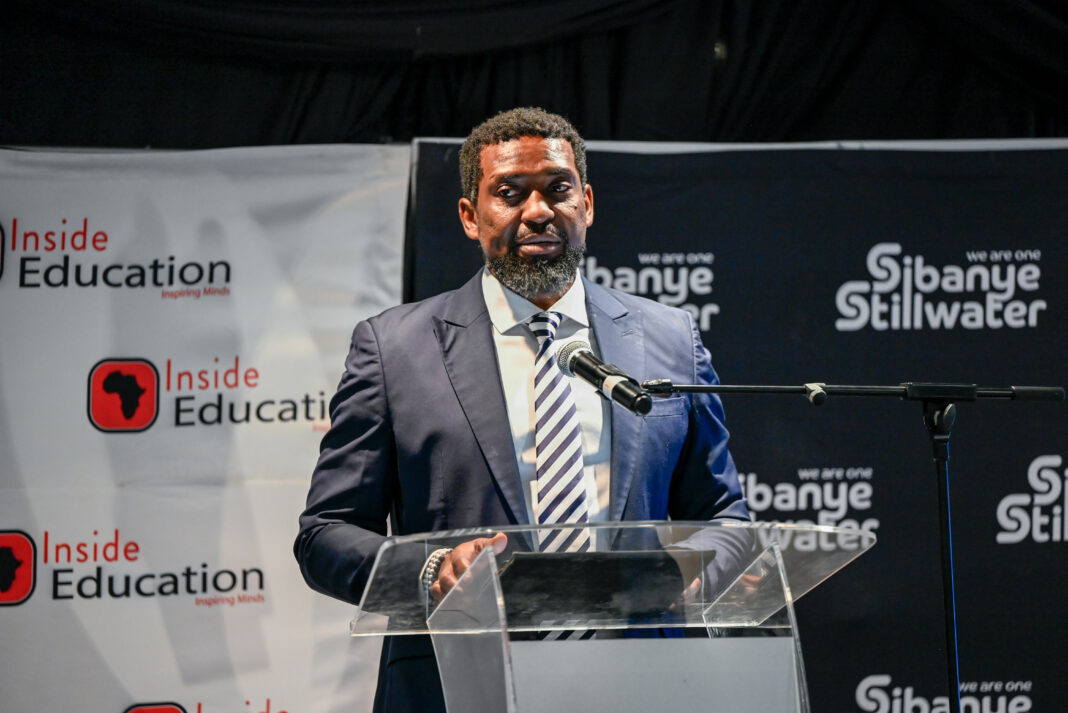By Edwin Naidu
The Department of Higher Education and Training (DHET) has activated its war room for the 2025 academic year to monitor and tackle potential challenges, ensuring a trouble-free start.
According to Higher Education and Training Deputy Minister Buti Manamela, the department was on track with its planning for 2025 and that teams would be on the ground to provide leadership and swiftly address potential challenges.
The DHET’s University Education Branch would visit universities to observe how registration processes were unfolding on campuses.
The war room aims to ensure a collaborative approach with university management, Student Representative Councils, the National Student Financial Aid Scheme (NSFAS) and the DHET to address concerns without disrupting the registration process and the beginning of the academic year.
The department has formed a steering committee comprising representatives from key stakeholders to address challenges and build on the lessons learnt from 2024. It is being overseen by Higher Education and Training Minister Nobuhle Nkabane.
Earlier this month, the steering committee heard from university registrars on plans to release registration data via a monitoring tool first used by the DHET in 2022.
The tool requires universities to provide data on applications received and spaces available for first-time students (undergraduates) per programme and faculty, emergency accommodation plans in place to assist students while they are waiting to finalise registration and accommodation placement, and the registration process (online, physical, assisted registration and extension).
A Central Application Clearing House provides an opportunity for learners who have yet to receive a place to study at a post-school higher education institution. It opens for sign-ups on 24 January 2025, more than a week after the announcement of the National Senior Certificate examinations on 13 January.
NSFAS concerns
When the department met registrars and the NSFAS in October to discuss and assess the readiness of universities and the scheme to start the 2025 academic year, the registrars raised concerns about the scheme’s preparation for the year. They stated that the issues that arose during the registration process in 2024 should be addressed before the start of 2025 registration.
These included delays in processing applications for funding, issuing confirmations, disbursement of allowances, processing of appeals and private accommodation-related matters.
Another concern for 2025 was safety and security.
Manamela said the DHET’s university branch was continuing to participate in the National Joint Operational and Intelligence Structure to strengthen its relationship and engagement with the Safety and Security cluster. Primarily, the need to ensure “vulnerable” first-year students were housed close to or on university premises and given necessary protection was paramount.
Universities of South Africa (USAf) chairperson Prof. Francis Petersen has warned that although the matric results would be released a week earlier, it would still pressure universities, especially in finalising the NSFAS funding list.
In 2025, 16 universities will start their academic year in January and 10 universities in February.
According to USAf, the enrolment capacity for universities in 2025 is 202,000. Most universities’ teaching and learning programmes will be face-to-face, incorporating blended methodologies to enhance them. At the same time, all universities have wi-fi on campus and in their residences.
USAf chief executive Dr Phethiwe Matutu has warned that 12 universities have indicated a shortage of accommodation.
She said they were concerned about the capacity of NSFAS to manage student accommodation allocations promptly.
“There is a need for NSFAS to consider university accommodation and university-leased accommodation first before private accommodation to ensure that public infrastructure is appropriately utilised,” she said.
The NSFAS plans to finish processing all 2025 applications by 31 January 2025, with upfront payments for all students including Health Sciences expected to be paid by early January.
The upfront payment for universities is based on the total amount of the 2024 academic year, which is expected to represent 10% of the total amount paid. One month’s payment is equal to this sum, estimated at R3,716,973,899.31. The funding is intended to cover personal care, living expenses, travel, books and accommodation.
For TVETS, each college receives an annual tuition allocation which stipulates the total amount to be utilised towards tuition payments for qualifying NSFAS students. The upfront payment to be advanced is based on 20% of each TVET college tuition allocation. Therefore, R641,013,350.00 will be paid as tuition upfront to TVET colleges by the 10 January.
Student concerns
The SA Technical Vocational Education and Training Student Association (Satvetsa), which represents the interests of the students across all 50 TVET colleges, has been engaging the DHET on implementing SRC recommendations to ensure the smooth operation of campuses.
The association has warned there are a number of issues which could disturb the smooth opening of the 2025 academic year, including:
• Some institutions do not have SRC members, which creates communication barriers between students and management;
• The issue of campus safety is still a significant challenge at campuses;
• Poor maintenance in college-owned residences;
• Colleges not supporting Satvetsa and SRC members (some not affiliated to the structure); and
• The lack of institutions having partnerships with the private sector for students’ placements, resulting in them having to stay at home.
The SA Union of Students has warned that the registration period is a make-or-break moment for the higher education sector, and failure to resolve fundamental matters that hinder access, particularly for low-income and working-class students, creates unnecessary tensions.
Stability in NSFAS and its systems are critical for a smooth and peaceful take-off for the 2025 academic year.
INSIDE EDUCATION







